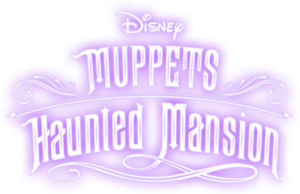On the weekend of August 23, thousands of Disney fans and reporters flocked to Anaheim, California for D23, Disney’s biannual exposition of all the things it plans to do in the near future. They were treated to a smorgasbord of reveals, from upcoming films in the Marvel Cinematic Universe to new Star Wars shows to theme park updates to details about Disney’s upcoming streaming service, Disney+. Most of this news seems pretty exciting. The casts of the new Marvel properties are remarkably diverse. The CGI dogs in Lady and the Tramp (2019) look like they can actually express emotions. The Mandalorian seems pretty badass. Overall, the event was a major success for Disney and showed off an impressive range of upcoming projects. With all these announcements, however, there was a much more sinister message on display: Disney owns everything and they’re going to use that power purely for monetary profit.
Over the past several years, Disney has been steadily buying up properties and studios to augment its already impressive catalog of beloved cultural touchstones. Starting with its acquisition of Pixar in 2006, Disney later purchased Marvel Studios and Lucasfilm (which produces the Star Wars movies). Earlier this year they purchased 20th Century Fox, which controls the X-Men, Avatar, Alien, and Fantastic Four franchises along with a massive back catalog of important films like Die Hard (1988), Titanic (1997), and The Shape of Water (2017). That list doesn’t even include the TV holdings that Disney gained from the Fox merger, which include ESPN, FX, and a controlling share in Hulu. That means that The Handmaid’s Tale, Atlanta, and Archer are now Disney properties. This level of media consolidation is unprecedented and a little frightening, regardless of who is doing the purchasing. An entire studio like 20th Century Fox just disappearing means that one less company has a say in what our entertainment looks like, and we grow closer to a media monopoly. Regardless of how diverse writers rooms and directors chairs get, fewer people at the top greenlighting projects means there will be less variety in our entertainment and the media we consume will be easier to control.
This is especially true for Disney, the only major media studio with a defined brand. In general, Disney films are big, mass appeal movies designed to please everybody and offend nobody. This wasn’t necessarily a bad thing when Disney was only one in a larger pool of major studios and consistently released original, boundary-pushing films that still fit within the scope of their brand. But as they’ve grown bigger, their film choices have grown safer. More of their releases are sequels, spin-offs, or remakes of old classics. It has gotten to the point that out of the 22 movies Disney has released since 2017 (excluding releases inherited from Fox), only one of them, Coco (2017), was an original film property. The live action (or hyper-realistic CGI) remakes of Disney’s animated classics are especially indicative of its plans for the future, adding nothing to our pop culture landscape and requiring no creative or critical engagement from either creators or audiences. With their acquisition of Fox and the launch of Disney+, a streaming service deliberately set up to challenge Netflix, Disney has a huge opportunity to be creative, but it seems like they will continue to play it safe.
In the middle of all the information at D23 about upcoming releases, Disney quietly announced it was cancelling Book of Enchantment, a planned Disney+ show about the origins of Disney’s classic villains. Allegedly, Disney objected to creator Michael Seitzman adding adult themes to the show, because an in-depth exploration of the origins of evil should be light, happy and child friendly. Another story dropped saying that some Disney executives were considering pulling Jojo Rabbit (2019), a Taika Waititi-directed film they inherited from Fox, because the anti-hate satire might be too controversial for Disney’s brand. It was also reported that Disney+ will not host R-rated content. All of this is indicative of a movie studio unwilling to take risks or allow its writers to follow their creative visions to where they need to go. There is obviously an important place in our pop culture landscape for easy-to-digest, family-friendly franchise films, but there also needs to be a place for original ideas and edgier content.
The real shame is that Disney is uniquely positioned to produce original content. New content is, almost by definition, more expensive to create than extensions of existing properties. It requires more time and effort to develop, more advertising to sell to audiences, and the increased risk that audiences won’t respond to it and the movie will flop. Disney, however, has enough money and enough secure sources of income to absorb a financially disappointing project. As of September 1, Disney has earned $8 billion in ticket sales, controlling 40% of the total domestic box office. That’s more ticket revenue than the next three studios (NBC/Universal, Time Warner, and Sony) combined, and Disney still has Frozen 2 (2019) and Star Wars: The Rise of Skywalker (2019) coming out before the end of the year. It’s an obscene amount of money and more than enough to cover the production costs and potential risks of a new film. Basically, Disney can afford to lose money on an original idea because they know the next Marvel, Pixar, Disney Animation, or Star Wars film will easily make over $1 billion.
But that commercial success is also why Disney doesn’t make original content anymore. Yes, The Lion King (2019) was a creatively void endeavour but it made $1 billion. Yes, three Marvel movies in six months is excessive, but Avengers: Endgame (2019) is now the highest grossing movie of all time. Yes, Toy Story 4 (2019) and Incredibles 2 (2018) were unnecessary and covered the same thematic material as their predecessors, but they each made more money than the earlier films. In fact, out of all of Pixar’s films, the only four to break the $1 billion mark are sequels (Incredibles 2 (2018), Toy Story 3 (2010), Toy Story 4 (2019), and Finding Dory (2016) in case you were curious). Why risk making original movies if sequels, remakes, and franchises are so profitable? The same calculation extends to Disney+ which, despite lacking the promise of original intellectual property that fuels competitors like Netflix and Amazon Prime, is projected to pull in 54 million subscribers by 2024.
New and unique content is important for our pop culture landscape. It drives creative innovation, inspiring wonder and providing a new framework for imagination. It can also push social and political issues forward, centering new voices and explaining new ideas to a wider audience. In essence, it keeps our society from stagnating culturally or being forever stuck—telling the same stories over and over and over again. Unfortunately, the biggest takeaway from D23 was that Disney wants to do as little as possible to create new stories. Instead, they will continue to grow by exploiting old properties and avoiding any content that could possibly rock the boat.






I just wish audiences would go out in droves to support these new and original projects when studios actually make them.
Disney made Queen of Katwe, The Finest Hour, MacFarland USA, A Wrinkle in Time, Penguins, and Chimpanzees. All great films with original content (or in some cases new to screen content) and no one even remembers them. But rest assure that The Lion King’s shot for shot remake, Aladdin’s remake, Toy Story 4 sequel, Captain Marvel and Avengers: End Game all made over $1B, or $2B in one films case.
Next year’s Disney slate is interesting. Will Raya and the Last Dragon, Onward, Soul, Jungle Cruise, Artemis Fowl, and The One & Only Ivan perform even slightly close to $1B+ or will they get fumbled by Mulan, Black Widow and The Eternals? Will Togo, Secret Society, 29 Dates, Safety, Noelle, and Timmy Failure gather great success on Disney+ or will they be drowned out by Lady and the Tramp’s remake, The Phineas and Ferb Movie sequel, Peter Pan’s remake? Will Life and Deaf and Diary of a Female President perform even slightly as well as The Mandalorian and The Falcon & the Winter Soldier? Will Dollface and The Mysterious Benedict Society on Hulu do as good as Runaways and Ghost Rider?
My take away from this is that Disney has simply navigated towards making content that they know consumers want and will flock to and that even when they have original content, consumers ignore it.
I mean, I haven’t seen anyone talk about Life and Deaf, Togo, or Raya the way I’ve seen them talk about The Mandalorian. Lady and the Tramp, and Star Wars: The Rise of Skywalker?
Audiences have pretty much ignored the 20th Century Fox slate… Tolkien, Dark Phoenix, Stuber, The Art of Racing in the Rain.